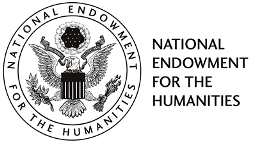
For Educators
Photo Captions for the 2010 Churchill Centre Teacher Seminar

Winston Churchill, Parliament Square, London © Sue Lowry & Magellan PR
September 15, 2010
“Winston Churchill and the Anglo-American Relationship”
July 11-31, 2010; Cambridge and London

2024 International Churchill Conference
A three-week summer institute for teachers, directed by Professor James W. Muller, University of Alaska, Anchorage, Academic Chairman of The Churchill Centre, and funded by the National Endowment for the Humanities. The grant application was submitted in early spring 2009 by James W. Muller, Suzanne Sigman and Daniel N. Myers, and administered on-site by Professor Muller and Suzanne Sigman.
P105077, P105075
Our first outing, upon arrival, was to the Cambridge American Cemetery and Memorial site in Madingley. The University of Cambridge donated its 30.5 acres. The cemetery contains the remains of 3,812 American military dead; 5,127 names are recorded on the Tablets of the Missing. Rosettes mark the names of those since recovered and identified. Most died in the Battle of the Atlantic or in the strategic air bombardment of northwest Europe. Bob and Genie assist our outstanding guide, Arthur Brooks, in lowering the flag at Taps.
Seminar Sessions
0978, 0977
Teachers are ready for the upcoming 1.5-hour seminar session.
014
So much fun to hold a session in the Old Harrovian Room at Harrow School.
0971
Outside the Archives Centre with Celia Sandys, center front, after her presentation and Q&A on “The Lighter Side of Churchill.”
Guest Lecturers
097
Leanne and Joe chat with guest lecturer Professor Kevin Theakston who led sessions on “The British Political System and Churchill” and “Was Churchill a Good Prime Minister?” Theakston is Professor of British Government, University of Leeds, and a former Kennedy Scholar at Harvard University. The author of six books, including Winston Churchill and the British Constitution, he is England’s expert on the assessment of prime ministers.
P1050801
We ate three meals a day in the Churchill College Dining Hall! Esteemed historian Richard Overy, third back on the right, joins us for lunch after leading sessions on “Churchill’s Strategy from Rearmament to D-Day” and “Churchill and the Aeroplane: Battle of Britain and Bombing.” Overy is Professor of History at the University of Exeter where he serves as Director of the Centre for the Study of War, State and
Society
P1060360
Max Hastings, author, journalist and broadcaster, autographs his highly regarded book Finest Years: Churchill as Warlord, 1940-45 (2009) for Joe, following his presentation and Q&A.
Other guest lecturers were David Woolner, Franklin D. Roosevelt Library, and Piers Brendon, Churchill biographer and former Keeper of the Churchill Archives Centre. Both sought to address the Churchill-Roosevelt relationship.
Site Visits
Bletchley Park
P1050964
Teachers visited Jack Darrah’s Churchill Collection at Bletchley Park, a lifetime of work- and still growing!
P1050965
Jim and Suzanne with Jack Darrah
P1050985
More fun at Bletchley Park
Europe 2010141
Churchill greeted us at Bletchley
Churchill War Rooms
P1060299
Phil Reed (left), Director of the Churchill War Rooms, welcomes teachers to the Cabinet War Room. Churchill’s chair is left vacant, at center rear, in front of the map.
Parliament
Europe 2010 261
We were awestruck by famous plaque in the floor of Westminster Hall, seen during our tour of Parliament, arranged by Nicholas Soames MP, Churchill’s grandson, through the kindness of his gracious assistant, Corinne Conrath.
Blenheim
Europe 2010 190
Awaiting our tour of Blenheim Palace.
The group also visited Chartwell, a day not “wasted.”
P1060379, 043, 1060378
Our farewell dinner, sponsored by The Churchill Centre, was at Ciao Bella, just a few blocks from our London accommodations at Goodenough College in Mecklenburgh Square (Bloomsbury).
From an anonymous evaluation:
“This was an amazing experience. Through the readings, discussions, research, guest lecturers and ‘field trips,’ I was able to gain new insight into Churchill and World War II. I feel it is important as a teacher to be a life long student. Often there is a misnomer that history is a ‘stagnant’ [subject] which does not change; new scholarship is always happening which can change our understanding of the past. It is important that high school teachers are part of this ‘conversation’ and have access to the most up-to-date understanding of the past because we are the ones conveying information to the next generation. This institute was an amazing way for high school teachers to be brought into the academic conversation so we can now bring it back to our classrooms.”
Thanks to the photographers: Eileen Bach, Genie Burke, Joe Gianetto, Brian Powers, Suzanne Sigman and Suzanne Wooten.
Subscribe
WANT MORE?
Get the Churchill Bulletin delivered to your inbox once a month.



